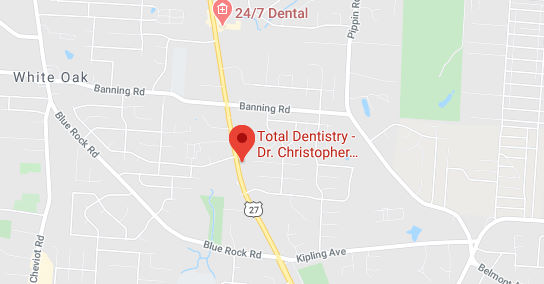When to call us
Most people experience some discomfort when they start wearing a new denture, but call us right away if you have:
- A reaction to the medication
- A spot where the denture is rubbing and creating a sore spot
- Need for a bite adjustment once the denture settles
- A denture that becomes loose over time. Over time denture wearers experience changes to their jaw bone and gums. These changes create a loose fitting denture that will need to be re-lined. Wearing ill-fitting dentures can cause severe bone loss and serious oral disease.
Follow these instructions carefully to ensure the success of your new denture:
- It may take some time to get used to speaking with your new denture. Practice reading out loud until your tongue adjusts to the new denture.
- Be prepared for extra saliva for the first few weeks as your mouth adjusts to having something new in it.
- Eat soft foods at first to get used to eating with the denture in place.
- Clean your dentures with a denture brush every day, and soak it daily in water to keep it from losing its shape.
- Soak your denture once a week in a denture cleaner, such as Polident to keep it clean.
- Brush the roof of your mouth as well as your gums and tongue to keep them clean and healthy.
- Leave your denture out overnight or for at least six hours a day to allow your gums to rest.
- For partial dentures with metal clasps special care should be taken while inserting and removing them, so as to not place stress on your remaining teeth.
- For partial denture wearers, maintain a 3 month or 6 month cleaning schedule to keep your remaining teeth clean and healthy.
- For denture wearers, return to our office once a year for follow up visits. Over time changes in the mouth will occur from things like bone loss. These changes will result in the denture not fitting right which can cause trauma to your gums and/or a loose denture. We can monitor and fix these problems if we see you once a year. We also perform an Oral Cancer Screening at these yearly visits.

